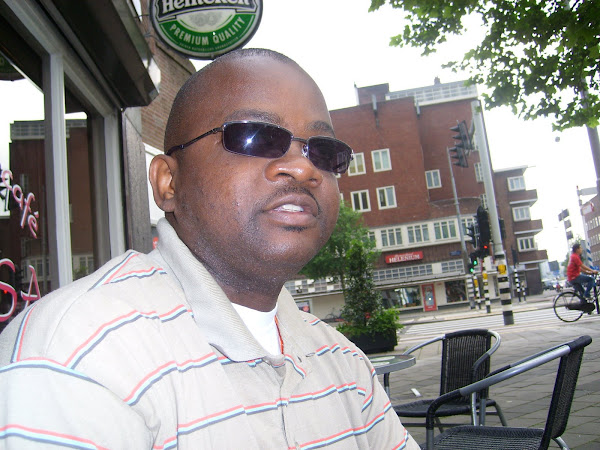
President Jakaya Kikwete
President Jakaya Kikwete yesterday distanced his fourth-phase Government from the ongoing controversy over whether Tanzania should have Kadhi (Islamic) courts.
He said the issue was first mooted by opposition politician Augustine Mrema, currently national chairman of the Tanzania Labour Party.
The President explained that Mrema, who once served as deputy Prime Minister before crossing over to the opposition, initiated the issue when he was Member of Parliament for Dar es Salaam`s Temeke constituency on the NCCR-Mageuzi ticket.
The President made remarks at a ceremony in the city to install Bishop Alex Malasusa as the new Head of the Evangelical Lutheran Church of Tanzania.
He said although the setting up of the courts was indeed among the promises he made through Chama Cha Mapinduzi, on whose ticket he contested and won the race to State House in late 2005, that did not mean that he was involved in actually deciding whether to implement or dump the idea.
He added that, according to the principles, guidelines and regulations CCM uses in running its affairs, no presidential candidate is involved in the preparation of the party`s Election Manifesto as an individual.
`Our party`s (CCM) manifesto for the 2005 General Elections was prepared a whole year ahead of the elections actually got under way, meaning that no presidential contestant was involved in its drafting or fine-tuning in his or her individual capacity,` President Kikwete pointed out.
`I am not the one who prepared the Election Manifesto�It was prepared by a special commission and a copy handed over to me by the party�s National Chairman, then President Benjamin Mkapa, during its launch,` he noted, insisting that that usually the election manifesto is prepared before the party�s presidential candidate is known.
President Kikwete said the issue of Kadhi courts originated from politicians, adding: `There are signs that the issue has not been handled properly, as evidenced from the fact that it is now threatening the love and cooperation that have for long characterised relations between Muslims and Christians in our country.`
He blamed politicians and religious leaders for allowing themselves to be overcome by emotions when debating differences between the two major religions in the country.
Putting the matter in further historical perspective, the President stated that Mrema presented a private motion in the National Assembly when he was Temeke legislator.
He said another then opposition politician, Thomas Ngawaiya, also presented a similar motion when he was legislator on a Tanzania Labour Party ticket.
`In his wisdom, then National Assembly Speaker Pius Msekwa decided that the House was not the best place for the discussion to take place. He therefore referred it to the respective House committee (Law and Constitutional Affairs), which was at the time under Athuman Janguo,` he added.
President Kikwete said the committee, acting on behalf of the House, studied the matter and toured a number of countries inhabited by both Muslims and Christians just like Tanzania to see whether the idea to establish Kadhi courts was viable.
He named the countries toured as Kenya, South Africa and Uganda and noted that Kenya had Kadhi courts since the colonial era, mostly in areas where there were many Muslims.
According to the President, Uganda was yet to set up Kadhi courts although they are provided for in the country`s Constitution.
South Africa has no such courts although issues referring exclusively to Muslims` affairs have a place in the country�s laws.
He said the parliamentary committee completed its mission and submitted its findings to the Speaker, who in turn sent the respective report to the Government for further action.
`We, as the sitting Government, cannot take the issue lightly because we have State organs to discuss, approve and decide on special issues like this one.We will therefore hand over the case to the committee in charge of reviewing laws for a final decision in February next year,` stated the President.
He appealed to the country`s Muslims and Christians to exercise maximum patience and await further guidance and advice from the said committee.
`Patience will help the committee come up with a sober decision made without undue pressure from any of the parties involved. I am sure that whatever the committee decides will be for the good of our nation,` he said.
He added: `I would like to stress that this is not a personal issue. I found it under discussion and would like it to proceed to its logical conclusion,` insisted Kikwete.
He emphasized that it would be wrong for anyone to push the committee around and that it was important `for us to let it carry on with its duties without interference`.
President Kikwete called on worshippers from all denominations to ensure that peace and tranquillity prevailed all over the country.
`It is clear that the peace and tranquillity we have in our country is in a way thanks to deliberate efforts by the Church,` he pointed out.
The President expressed hope that Bishop Malasusa would reap from all the good deeds of his immediate predecessor, retired Bishop Samson Mushemba.
`Our government will always work hand in hand with the Lutheran Church to improve health, education and other social services in the country,` noted the President.
Responding to the President`s remarks, Bishop Malasusa said the issue of Kadhi courts was an especially sensitive and complicated one. `It involves a difficult decision but the Church will always pray for you always,` he observed.

No comments:
Post a Comment